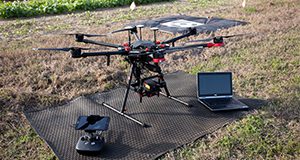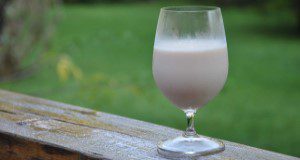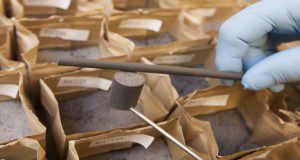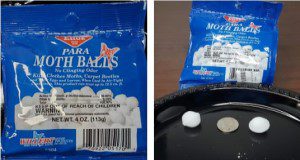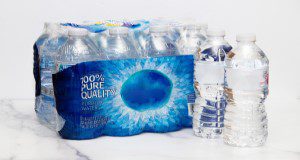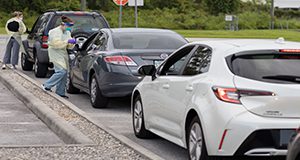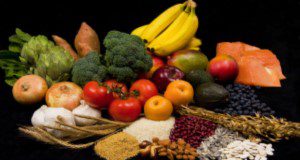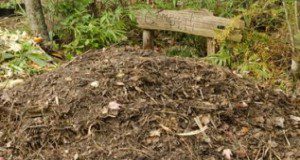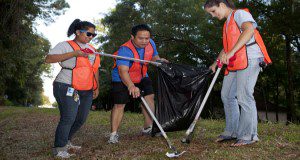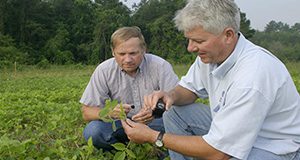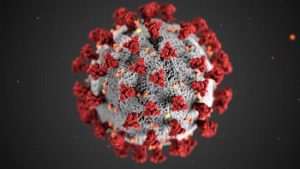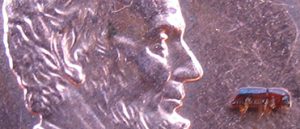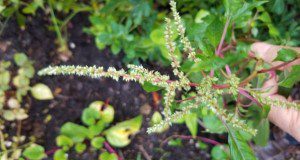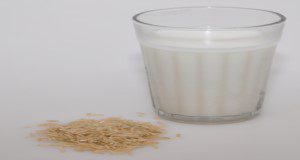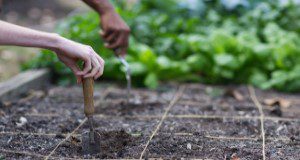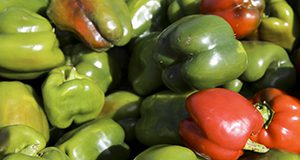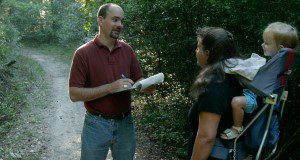Unmanned aerial systems (UASs, UAVs, or drones) have emerged as an important tool for farmers, Extension agents, and landowners to map, monitor, and manage their properties. This 5-page publication provides an overview of the primary components of typical UASs to help growers, landowners, and/or Extension agents who want to configure and/or purchase a UAS or sensor system for agricultural operations. This document is one of a three-part series focusing on the applications, configuration, and best practices for using UASs in agricultural operations management. Written by Aditya Singh and James Fletcher, and published by the UF/IFAS Department of Agricultural and Biological Engineering, February 2021.
https://edis.ifas.ufl.edu/ae552
Leches a base de plantas: Soya
La leche de soja es una leche vegetal elaborada a partir de semillas de soja (Glicine max). A diferencia de algunas de las leches de origen vegetal que se comercializan recientemente, la leche de soja tiene una larga historia como bebida en todo el mundo y se comercializa en los Estados Unidos durante más de un siglo. Si se ha preguntado cómo se compara con la leche de vaca, esta publicación describe los ingredientes y el contenido de nutrientes de la leche de soja producida comercialmente y sus posibles beneficios y riesgos para la salud.
This new 6-page publication of the UF/IFAS Food Science and Human Nutrition Department is the Spanish translation of FSHN20-54/FS422, Plant-Based Milks: Soy, written by Jessica Goldberg, Daniela Rivero-Mendoza, and Wendy J. Dahl.
https://edis.ifas.ufl.edu/fs430
Soil-Test-Based Phosphorus Recommendations for Commercial Agricultural Production in Florida
This new 6-page publication of the UF/IFAS Department of Soil and Water Sciences is intended to address agronomic and environmental issues related to phosphorus (P) dynamics in Florida agricultural soils and soil test P interpretation and management for agricultural crops. This document aims to provide science-based information to agricultural clientele, including commercial producers, small farmers, Extension agents, crop consultants, landscape professionals, representatives of the fertilizer industry, state and local agencies, students and instructors of high schools and colleges, researchers, and interested Florida citizens. Written by Rao Mylavarapu, Yuncong Li, Maria Silveira, Cheryl Mackowiak, and Mabry McCray.
https://edis.ifas.ufl.edu/ss699
The Facts about Mothballs
Mothballs are widely available for purchase and familiar to many people. However, mothballs are one of the most misused products, and their misuse can cause harmful effects to people or the environment. This new 4-page publication of the UF/IFAS Pesticide Information Office will give the basics about what mothballs are, where they can be used, and their status as a pesticide. Written by Brett W. Bultemeier.
https://edis.ifas.ufl.edu/pi289
Private Wells 101: Bacterial Contamination and Shock Chlorination
Private well users are responsible for the management and protection of their wells. This new 4-page EDIS publication is for Florida homeowners who are interested in learning more about their well-water system and understanding how to properly shock, or disinfect, the well if there is evidence of drinking water contamination. Written by Yilin Zhuang and Mary Lusk, and published by the UF/IFAS Department of Soil and Water Sciences.
https://edis.ifas.ufl.edu/ss700
Purchasing Car Insurance: What College Students Should Know
Florida law requires drivers to have car insurance that provides financial protection in the event of a mishap. This 4-page publication provides an overview of auto insurance requirements in Florida as well as a glossary of car insurance terms for college students. Written by Nicholas Horvath, Jorge Ruiz-Menjivar, and Sarah M. Ellis, and published by the UF/IFAS Department of Family, Youth and Community Sciences, January 2021.
https://edis.ifas.ufl.edu/fy1493
Spatial Measurements on USGS Topo Maps
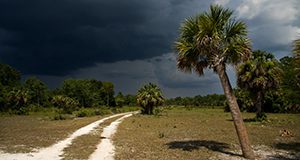
United States Geological Survey topographic maps provide a variety of geospatial measurement tools thanks to their built-in georeferencing capabilities. Georeferencing facilitates display of geographic coordinates and measurement of distances, perimeters, and areas on PDFs using the measure tools built into Adobe Reader and Adobe Acrobat. This 7-page fact sheet written by Hartwig H. Hochmair and published by the UF/IFAS School of Forest Resources and Conservation explains and showcases the use of these geospatial readout functions. It also provides background information about and assistance with estimating point coordinates on the Universal Transverse Mercator grid cast on USGS topographic maps as an optional layer.
https://edis.ifas.ufl.edu/fr433
Chronic Kidney Disease and Nutrition
Chronic kidney disease (CKD) is considered a public health issue within the United States because an estimated 37 million adults or 15% of the population have this disease. CKD is a disease characterized by the gradual loss of kidney function. Early prevention techniques such as a well-balanced diet reduce the progression of this disease. The purpose of this new 6-page article is to provide an overview of CKD and nutritional considerations. Written by Sofia Acevedo, Danielle Aycart, and Jeanette Andrade, and published by the UF/IFAS Food Science and Human Nutrition Department.
https://edis.ifas.ufl.edu/fs429
Recycling Organic Materials to Improve Your Florida-Friendly Edible Landscape
This new 7-page publication of the UF/IFAS Environmental Horticulture Department is intended to educate homeowners on environmentally friendly ways to enhance soil fertility for vegetables, herbs, and fruits in the home landscape. It discusses strategies for recycling nutrients in place or via composting systems to create productive edible landscapes with less waste. Adopting these methods into your landscape maintenance routine will build organic matter and add nutrients to the soil naturally. Written by Terra Freeman, Tiare Silvasy, Lynn Barber, Tom Wichman, Esen Momol, Tina McIntyre, Jacqlyn Rivas, and Jen Marvin.
https://edis.ifas.ufl.edu/ep599
Fundamentals of Volunteer Orientation
This new 4-page fact sheet is intended to assist volunteer managers when creating volunteer orientations for their new volunteers. Volunteer training and orientation is a critical component which should promote volunteers’ understanding of the role they hold within organizations. Leaders of volunteer organizations must ensure their organizations have adequately prepared volunteers to carry out the organization’s mission. Last, volunteer leaders should incorporate the cause, system, and social orientation components to effectively create an orientation focused on providing the appropriate onboarding of their most valuable asset: volunteers. Written by Olivia Caillouet, Jessica Williams, Shelby Atwood, and Matt Benge, and published by the UF/IFAS Department of Agricultural Education and Communication.
https://edis.ifas.ufl.edu/wc382
Weed Management in Soybeans
Successful weed control is one of the most important practices for economical soybean production in Florida. This 10-page publication discusses weed control methods for soybean growers. Written by J. A. Ferrell, G. E. MacDonald, and P. Devkota, and published by the UF/IFAS Agronomy Department, revised January 2021.
https://edis.ifas.ufl.edu/wg010
Manejo del COVID-19: mejores prácticas para agronegocios
This is the Spanish language translation of FSHN20-25/FS366, Handling COVID-19: Best Practices for Agribusiness. This material is adapted from the version published at https://foodsafety.ces.ncsu.edu/covid-19-resources/. Written by Tom Maddox and Laurel Dunn (University of Georgia) and published by the UF/IFAS Food Science and Human Nutrition Department.
https://edis.ifas.ufl.edu/fs395
Manejo del COVID-19: Granjas de frutas y verduras, y empacadoras
This is the Spanish language translation of FSHN20-25/FS366, Handling COVID-19: Produce Farms and Packinghouses. This material is adapted from the version published at https://foodsafety.ces.ncsu.edu/covid-19-resources/. Written by Laurel Dunn and published by the UF/IFAS Food Science and Human Nutrition Department.
https://edis.ifas.ufl.edu/fs394
Foundations of Effective Classroom Management
Classroom management can be challenging for teachers. While managing a classroom requires flexible approach, there are some basic strategies than can be used to make the classroom safe and engaging. This new 3-page article provides recommendations to teachers to manage student behavior in the agriculture classroom. Written by Kelsey M. Thornton, R. G. (Tre) Easterly III, and Ed Osborne, and published by the UF/IFAS Department of Agricultural Education and Communication.
https://edis.ifas.ufl.edu/wc381
Citrus Pest Quick Guide: Ambrosia Beetles (broadly used common name)
A one-page quick guide written by Lauren M. Diepenbrock and Jamie D. Burrow and published by the Entomology and Nematology Department presents the life cycle of the ambrosia beetle and provides several photos of the pest and the damage it causes to assist in identification.
https://edis.ifas.ufl.edu/in1283
Production Guide of Vegetable Amaranth for Florida
Vegetable amaranth is a beautiful and nutritious vegetable in the family Amaranthaceae. This vegetable has been cultivated in China for more than 400 years and has been introduced to several US states, such as Mississippi and Missouri. Florida’s mild climate combined with amaranth’s exceptional taste, nutrients, and colorful foliage suggest amaranth is a potential crop for commercial production for Florida. This new 7-page publication of the UF/IFAS Horticultural Sciences Department is intended to provide Florida growers with a production guide for vegetable amaranth to enhance its competitiveness and boost the economy by introducing this potential cash crop to growers. Written by Yuheng Qiu and Guodong Liu.
https://edis.ifas.ufl.edu/hs1407
Leches a base de plantas: Arroz
La leche de arroz es una bebida no láctea a base de plantas elaborada principalmente con arroz molido y agua. Se comercializa como un sustituto vegano de la leche de vaca, fácil de digerir y apto para personas alérgicas. Al igual que otras bebidas a base de plantas, la leche de arroz generalmente tiene un color blanco opaco o beige y una textura cremosa que se asemeja a la leche de vaca. Esta publicación describe cómo se elabora la leche de arroz, sus ingredientes y perfil de nutrientes, y los posibles beneficios para la salud y riesgos del consumo.
This new 5-page publication of the UF/IFAS Food Science and Human Nutrition Department is the Spanish translation of FSHN20-50/FS412, Plant-Based Milks: Rice, written by Meagan Lamothe, Daniela Rivero-Mendoza, and Wendy J. Dahl.
https://edis.ifas.ufl.edu/fs428
Seeding the Garden
Growing your own Florida vegetable garden can be a rewarding experience with a little planning. This 5-page publication of the UF/IFAS Horticultural Sciences Department presents an overview of proper seed selection and planting. It also provides best management practices, as well as relevant terms and methods, for seeding vegetables in home and community gardens. Written by Danielle Treadwell, David Outerbridge, Tabitha Petri, and James M. Stephens.
https://edis.ifas.ufl.edu/vh026
Bacterial Spot of Pepper
Bacterial spot, caused by three species of Xanthomonas, is a limiting disease problem on all peppers. This new 4-page fact sheet provides information on symptoms, causal organism and host resistance, disease cycle and epidemiology, and disease management (including cultural and sanitation practices, chemical control measures and the use of Actigard in chile peppers). Written by Camille McAvoy, Pamela Roberts, and Jeffrey Jones, and published by the UF/IFAS Plant Pathology Department.
https://edis.ifas.ufl.edu/pp362
The Savvy Survey #6e: Understanding How Question Type Impacts Future Analysis
This publication will briefly look at how the intent of a survey affects which types of questions should be asked and how the data can be analyzed to help address this intent. It is intended to provide guidance to Extension professionals, as well as persons in community organizations, who conduct surveys for program planning, improvement, and evaluation. Written by Colleen E. Gariton and Glenn D. Israel, and published by the UF/IFAS Department of Agricultural Education and Communication.
https://edis.ifas.ufl.edu/pd083
